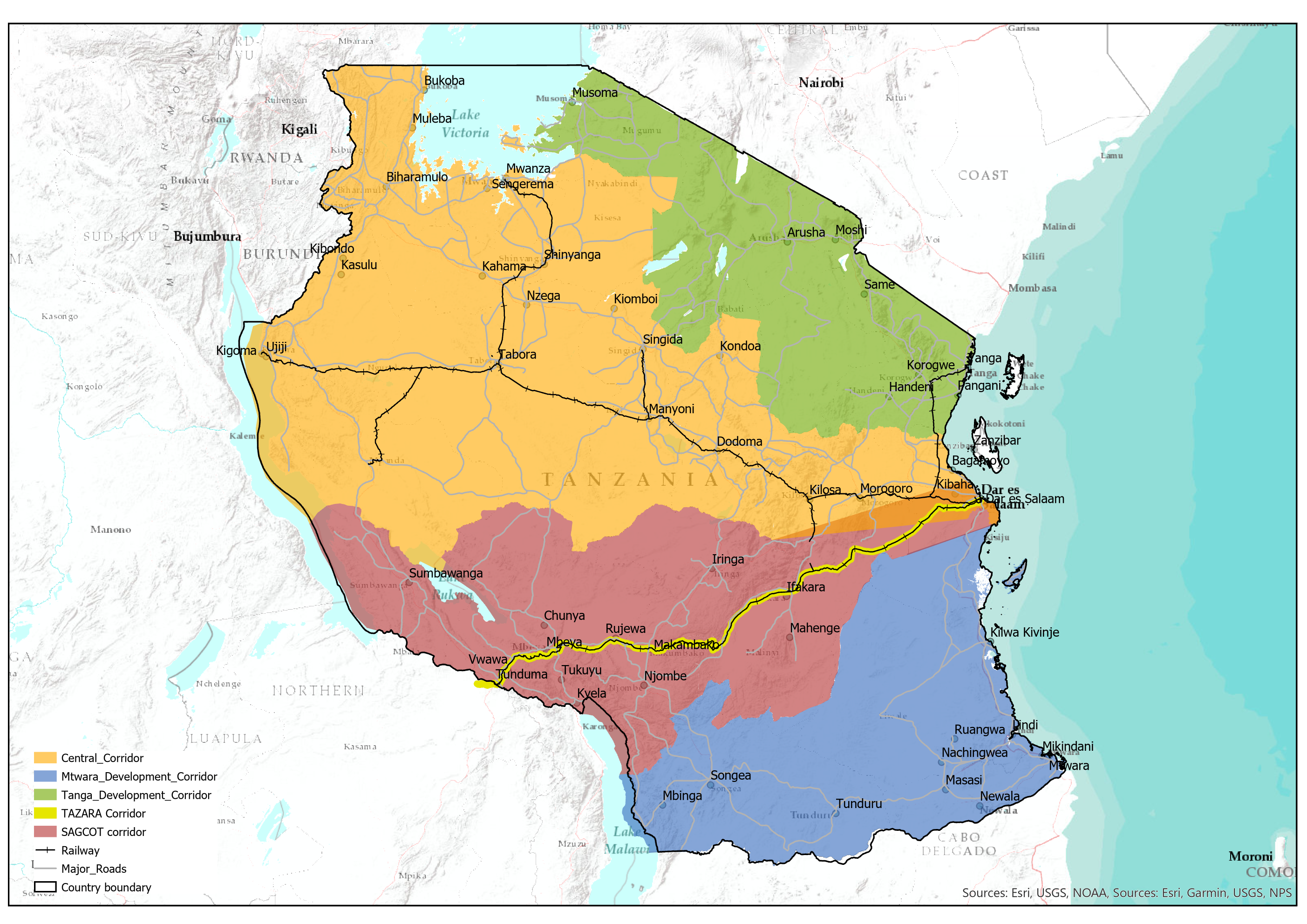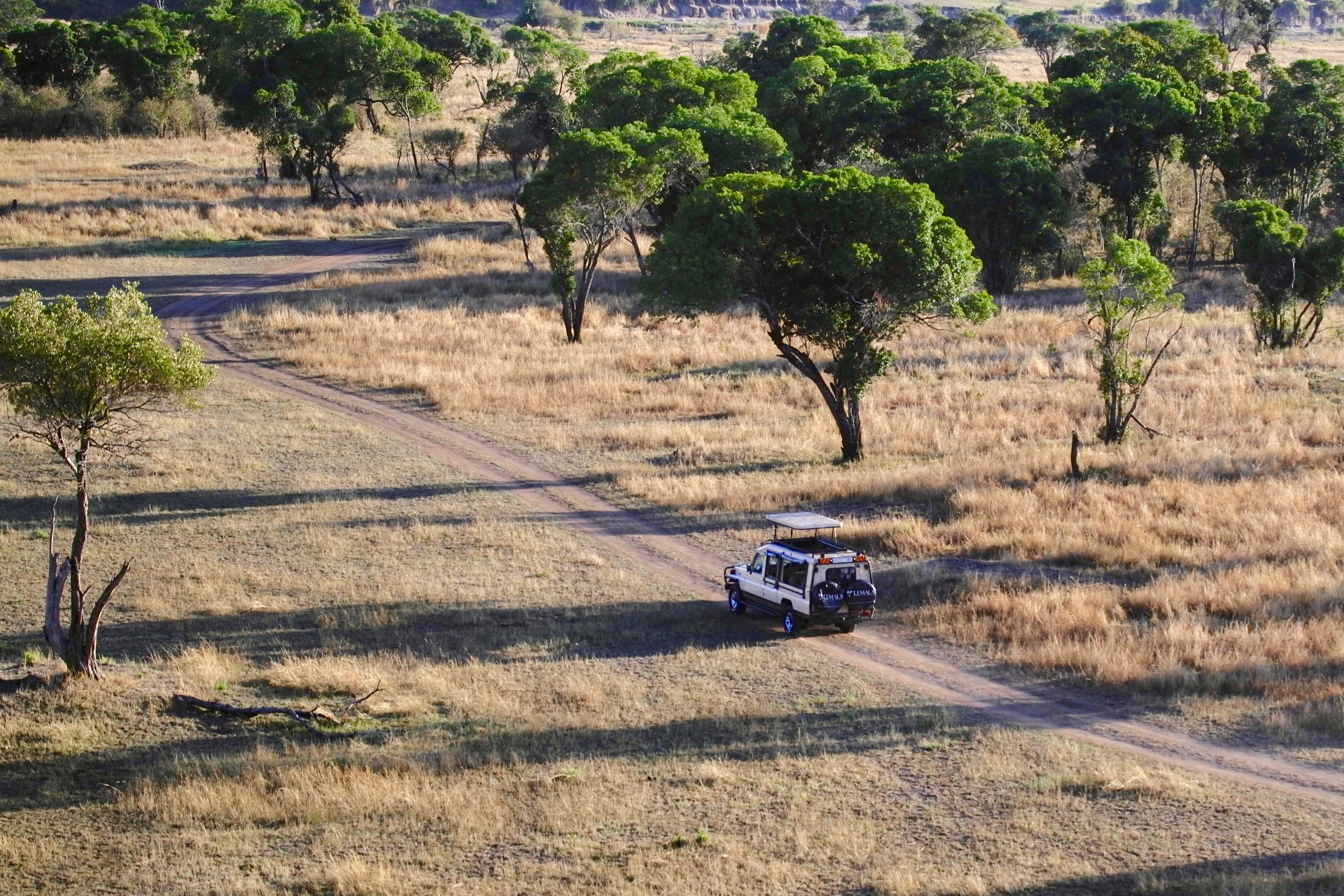Tanzania

The Southern African Development Community (SADC) promoted the idea of development corridors after recognising their potential to increase productivity for multiple sectors. SADC countries appointed their own institutions to oversee the implementation of development corridors. In Tanzania, The National Development Corporation (NDC), was given the mandate to coordinate the implementation of the regional development corridor approach. Currently, there are five major development corridors in Tanzania:
- Southern Agricultural Growth Corridor of Tanzania (SAGCOT)
- Central Development Corridor
- Mtwara Development Corridor
- Tanga Development Corridor
- Dar es Salaam Development Corridor/TAZARA Corridor
Development Corridors are planned to enhance investments and sustainable development. Some of the investments will use the opportunities that exist in the corridors such as the ecosystems and ecosystem services, natural capital and biodiversity in Corridors as the basis for their operation. Regardless of their socio-economic importance, poorly planned development corridors can result in degradation and fragmentation of natural ecosystems, and displacement of local people. The Development Corridors Partnership (DCP) will work to build capacity and provide information to ensure that corridor development in Tanzania is sustainable for people and nature, specifically focusing on the SAGCOT Corridor.

SAGCOT is divided into six clusters where agricultural investment is planned to be concentrated. An agricultural cluster is a concentration of producers and institutions in the agricultural sector that collaborate to address common challenges. Value chains are being developed in each cluster focusing on crops such as rice, potato, tomato and sugar cane. The SAGGOT corridor strategy is implemented by the SAGCOT Centre Ltd which acts as a broker between agricultural companies and investors, and promotes sustainable and inclusive growth across the corridors and active clusters. As of 2019, the Ihemi and Mbarali clusters have been established and have field activities ongoing, and the Kilombero cluster is being implemented. All three clusters are within the Rufiji river basin which drains into the Indian Ocean and stretches up to the Southern Highlands of Tanzania.
Development must take into account the future risks of climate change as agriculture is an extremely climate-sensitive sector. Decreased rainfall will result in drought, and where possible would require increased irrigation to compensate for moisture losses. An increase in rainfall would result in enhanced erosion and flooding, which could result in the leaching of soil nutrients and washing away of topsoil, potentially impacting plant development. If not accounted for, these occurrences could result in decreased agricultural yields, which would have severe economic and social consequences. Further climate change will also have profound impact on the natural capital, ecosystem services, and biodiversity of the corridor with consequences on the investments that are planned in the corridor.
Our work
The DCP will work to ensure that new agricultural investments within development corridors are environmentally, socially and commercially sustainable. The project will cover the following activities:
- Sokoine University of Agriculture (SUA), UNEP-WCMC and WWF Tanzania are collaborating with the SAGCOT Centre Ltd and its partners so that our research can inform their strategy in the emerging Kilombero cluster and improve the sustainability of the Ihemi and Mbaralli developments.
- UNEP-WCMC, SUA and WWF Tanzania will be conducting a situation analyses Mtwara development corridor in southern Tanzania.
- SUA and the Chinese Academy of Agriculural Sciences (CAAS) are preparing a climate adaptation plan to inform actions towards climate resilient agriculture at a cluster and corridor level.
- The University of York and SUA are conducting land use change participatory scenarios and models to understand how different actors envisage the future in Kilombero clusters.
- London School of Economics and SUA are using hydrological modelling of the Rufiji basin to understand water resource allocation issues.
- SUA is researching how land use change and development investments are impacting biodiversity and ecosystem services/processes including river hydrology and water resources, and assessing how local people benefit from natural capital/ecosystem services and nature in selected clusters.

For further information on our work on development corridors in Tanzania, read our scoping study.
